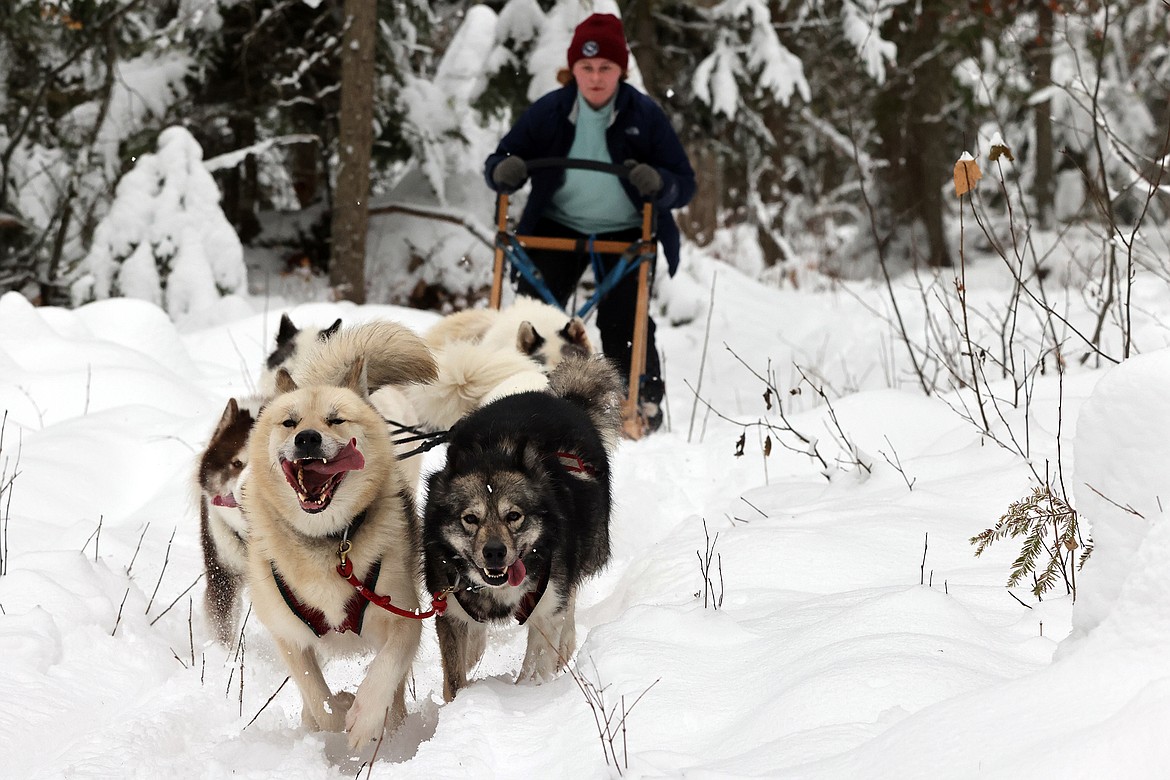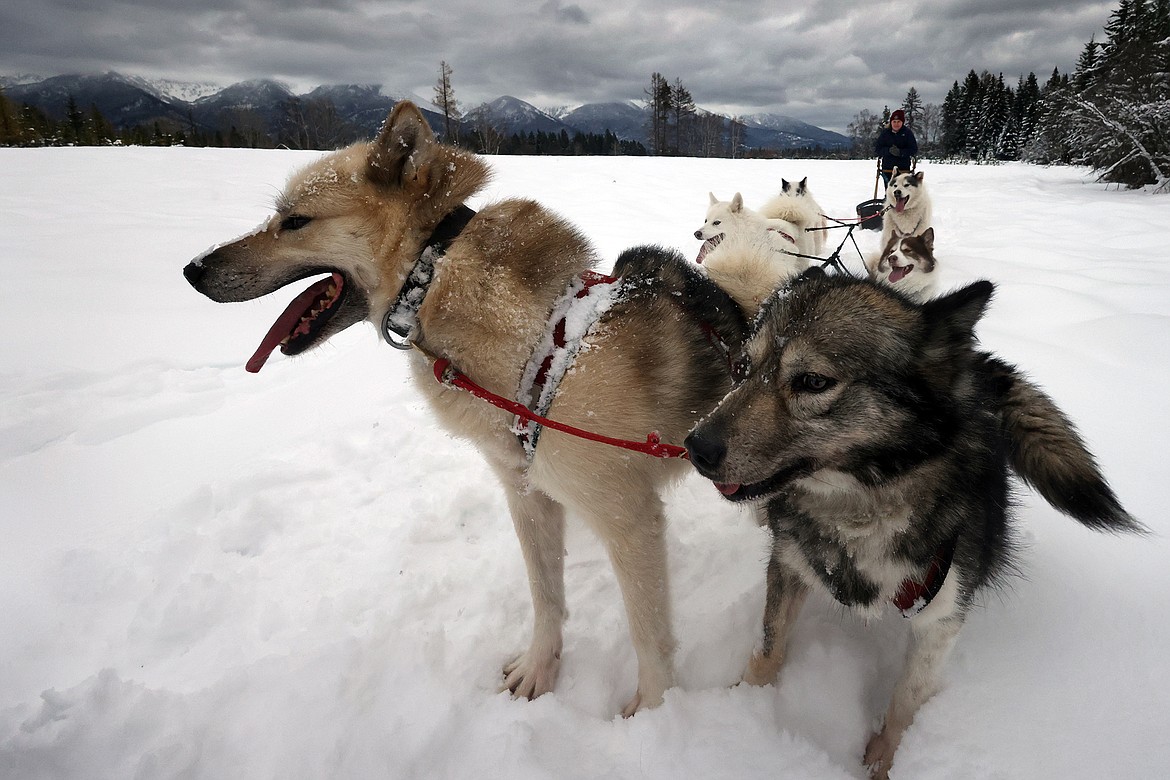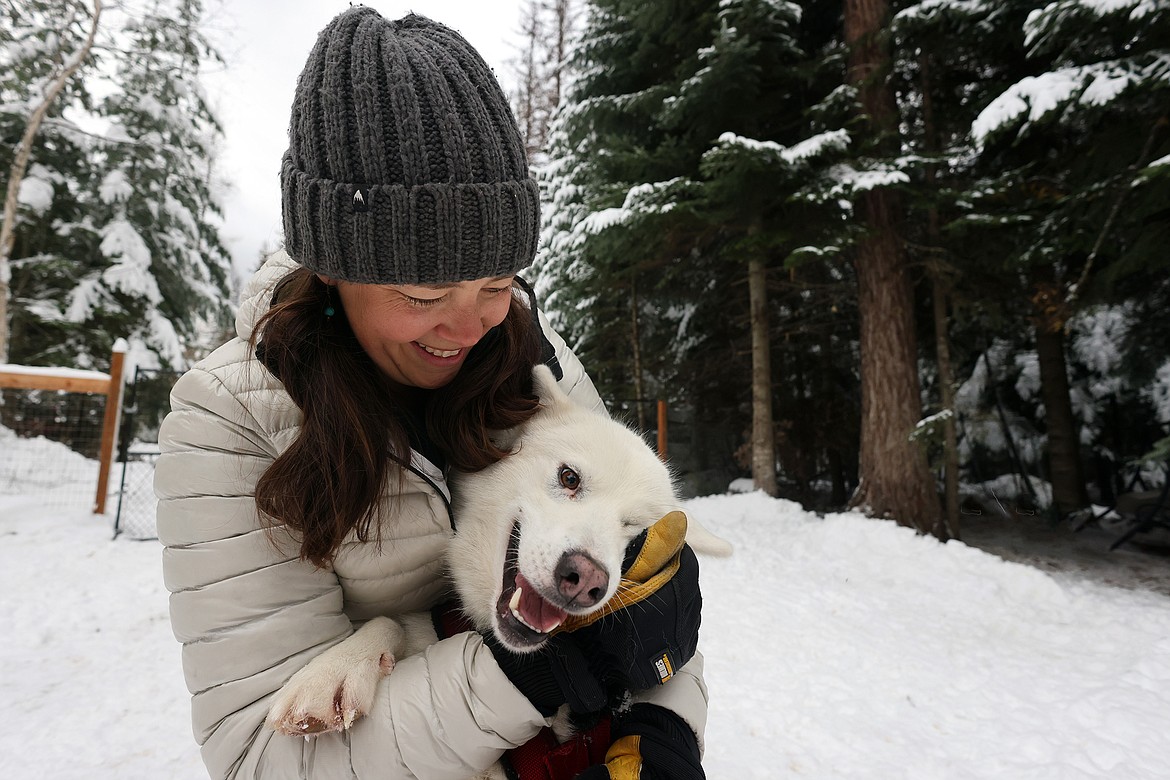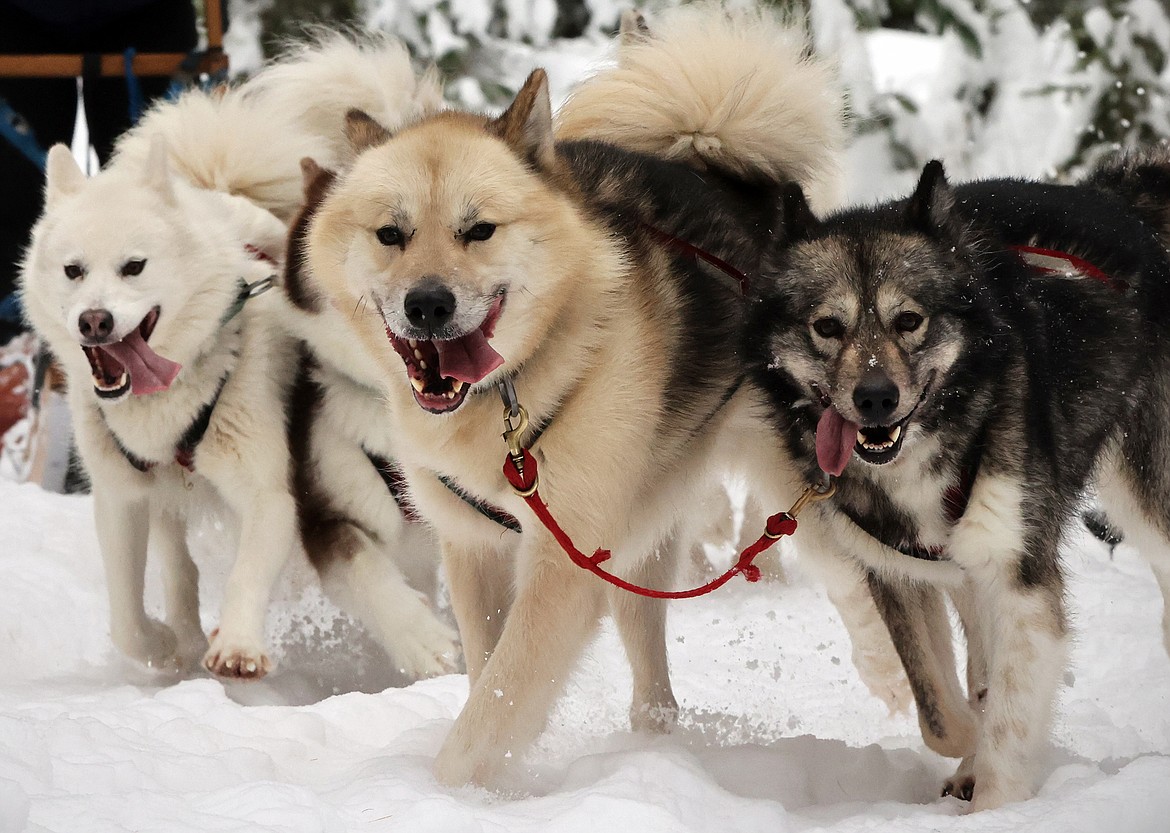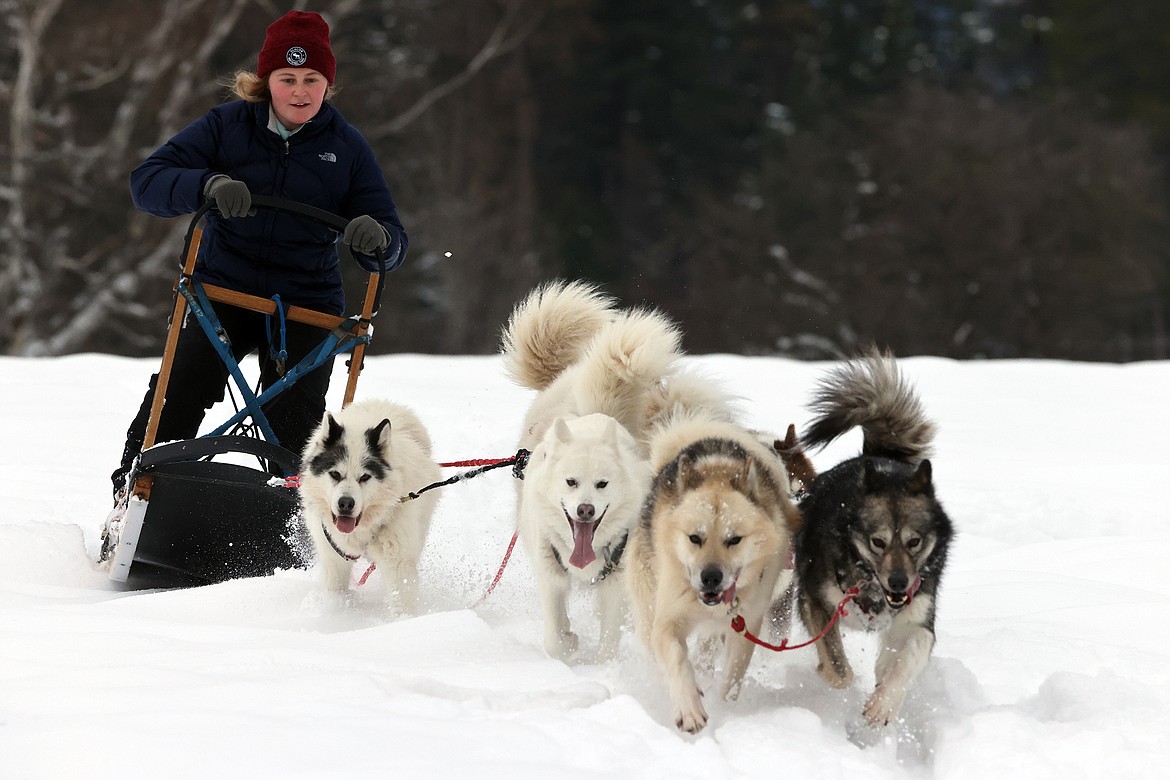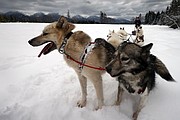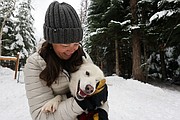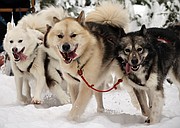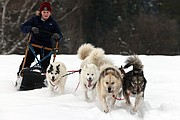Base Camp Bigfork mushes to 15 years of fun
Base Camp Bigfork offers an experience few can get in the lower 48. When owners Mark and Sam Schurke started their dog sled tours 15 years ago, they had no idea if people would be interested in it enough for it to be successful.
“I didn't know in that first season if the phone would even ring. If people would even want it,” Mark said.
But the people came, and now Mark and Sam stay booked and busy all winter, offering their dog sledding tours for faithful customers who sometimes come back year after year, from all over the United States and the world. Since then, they’ve been able to make it their full-time job and expand their services to include lodging and a storefront for summer equipment rentals.
Schurke said he was inspired by his uncle Paul Schurke, an avid dog sledder and Arctic explorer. Among many other accolades, Paul was named National Geographic’s Adventurer of the Year in 2014 alongside his colleague Dave Freeman, for retracing President Theodore Roosevelt’s 1914 first descent of the mythical “River of Doubt” in the western Amazon. He’s also taken a team of sled dogs up to the Arctic Circle multiple times, even being part of a team in 1986 that made the 1,000-mile journey without a resupply.
He admired his uncle’s adventures and also watched him run a successful dog sledding business in Minnesota. So, that sparked Mark and Sam to try to start something up for themselves in Montana.
“It was this love of the mountains and wanting to be in a place where there was a new adventure for me and Sam, and starting our family,” Mark said.
Mark and Sam started out working other full-time jobs until their business grew. They said it was trial and error, but their business offered something unique during the wintertime in an area where most tourism ventures focus on summer.
“In the winter, it really limits what people can do to enjoy the outdoors, and dogsledding is a natural attraction. So I say that the dogs kind of sell themselves … it's ultimately the dogs that attract the people,” Mark said.
For the Schurkes, dog sledding is more than just a way to get a paycheck, it’s an ancient tradition with an ethos they take very seriously. Their tours are very hands-on — they start by letting the soon-to-be musher help put on the dog’s harnesses, letting them burst out of their cages two at a time.
The dogs, all Inuit, live in spacious kennels which are enclosed by an even larger fenced area. Mark said they pride themselves in not chaining up the dogs and try to give them plenty of room to run around. Sam calls them their “free-range sled dogs.” The couple has recently extended their enclosure to include the forested space behind them, occasionally letting them out of their kennels to roam.
There’s a debrief before someone gets behind the sled, the basic stop and go signals “whoa!” and “hup!” Give the dogs plenty of praise, they feed off that excitement — and do not take your hands off the sled, because if they go and you’re not holding on, you’ll be left behind quickly.
“Our dogs have a very specific purpose and a very specific job. So that's why I say at the beginning of the trips, ‘they know what's going on’ … they're ready to do their job and get in line. So it's fun to see them have that purpose,” Sam said.
Mark said sled dogs want to run like labradors want to fetch, it’s something that is innate to them.
“There is some training, though … you have to teach them to sit and stay, that kind of thing. When it comes to a dog sled team, it's the turning and stopping and going and just trying to harness that energy, so to speak, and keeping it all under control,” Mark said.
They don’t buy their dogs, instead, there is a small community of people who breed and trade, keeping them as working dogs for their entire lives until it’s time to take it easy. They currently own 14 dogs, but only six at a time typically go out as a sled team. Mark said much like wolves, Inuit dogs establish rank and order — which can sometimes lead to scrambles.
“So, it's like a soap opera, you're constantly managing the drama — and they don't talk about their feelings, they usually fight it all out. So, it's not uncommon for the dogs to get at it. Thankfully, they're built for that,” Mark said.
The dogs learn from each other too. Throughout their lives, they take on different positions depending on their age.
“Certain dog’s personality types make for better positions on the team, whether they're a lead dog or a dog in the back, which is a wheel dog ... But they kind of learn, like a younger dog might learn from an older dog,” Mark said.
Over the years, the couple said one of the toughest aspects of their business has been knowing when and when not to expand. Sam said they have had double the demand than they’ve had the availability for their dog sledding tours nearly the entire time they’ve been open. But, the decision to not take on more dogs is quality over quantity.
“You have to go back to that social responsibility of like, ‘do we want twice as many dogs?’ … it conflicts with the original intent of what we wanted to do, but it’s a purposeful decision to keep it small,” Sam said.
To learn more about Base Camp Bigfork, check out basecampbigfork.com.


